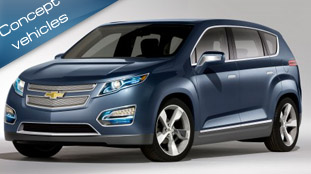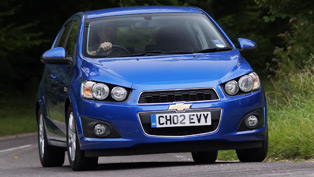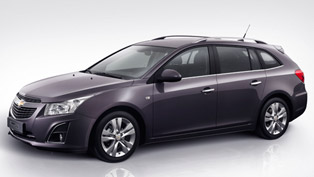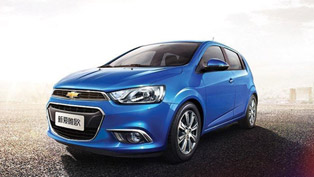Chevrolet extends LPG portfolio throughout Europe
Geneva – In 2009, Chevrolet will further expand its LPG product range throughout Europe. Switzerland, Belgium, Bulgaria, Czech Republic, Netherlands, Poland, Portugal, Slovakia and Spain will offer LPG-versions in addition to the regular gasoline and diesel range.
It is Chevrolet's strategy to offer LPG versions for its entire product line-up. This will include the brand-new Chevrolet Cruze, which will hit the European dealer showrooms in May 2009. An LPG version of the Cruze will be launched shortly after the launch.
LPG (Liquefied Petroleum Gas), also known as Autogas in some markets, is widely available: In Europe, more than 10 million LPG-powered vehicles are on the road, including 2.6 million in Poland alone. There are over 20,000 LPG fuel stations throughout Europe. Apart from reducing emissions, LPG also offers financial benefits through the tax advantages it enjoys in many countries. In Germany, for example, the tax privileges will remain in force at least until December 31, 2018.
At the push of a button, the driver can switch from gasoline to LPG or vice versa (bivalent propulsion), increasing the range to 1,100 km. The performance data of the vehicle remain unchanged. Apart from the additional tank, the LPG kit includes a separate gas-regulating device, a special evaporator pressure regulator for converting the liquid gas into its gaseous aggregate state, plus the necessary fuel lines.
At the same time, LPG helps reduce CO2 emissions immediately. For instance, the LPG-powered Chevrolet Matiz S 0.8, which is available in several European countries, has a CO2 output of only 119 g/km and is among the most environmentally compatible cars on the market.
Liquefied Petroleum Gas (LPG) – Advantages at a Glance
LPG is environmentally friendly! LPG has no lead-based additives and only low emissions of pollutants and soot particulates. It has a 80-90% lower potential of ozone and smog formation. LPG is also environmentally friendly in terms of fine dust. It has 20% less CO2 emissions than gasoline.
LPG is cheaper than fuel! In Italy, for instance, LPG costs 0.60 euros per liter, compared to 1.14 euros for regular gasoline. Reduced engine wear and longer running life increases the vehicles residual value. The costs for the retrofitting can typically be recovered within a few years (depending on the model and annual mileage). LPG systems can be ordered ex works, but used cars can be retrofitted with such a propulsion system as well.
LPG means better mileage and more flexibility! LPG vehicles have two tanks (bivalent propulsion with LPG and gasoline), almost doubling the range compared to a conventional gasoline-powered car. The LPG tank is fitted into the spare-wheel recess, leaving loading capacity unchanged. Drivers can switch between LPG and gasoline propulsion at the touch of a button. Engine performance does not suffer in the LPG mode.
LPG-powered vehicles get full warranty! Our three-year – or 100,000 km – new-car warranty also applies to LPG vehicles delivered ex works. Retrofitted LPG systems are subject to the general legal warranty requirements. All current Chevrolet models can easily be retrofitted with LPG propulsion systems.
LPG is safe! Testing requirements for the retrofitting of LPG systems are very strict. The components have also undergone special testing and are design-approved. The pressure-resistant tank undergoes numerous safety and crash tests and withstands even the strongest mechanical and technical strain. It can withstand 2.5 times the regular gas pressure, has an pressure relief valve and overfill prevention at 80%.
According to ADAC, Germany's largest automobile club, "practical experience shows that there is no indication of LPG vehicles having an increased safety risk, even in countries with a relatively high number of LPG vehicles on the road. Crash and fires tests prove that LPG vehicles are no more dangerous than comparable gasoline vehicles."
For that reason, and contrary to what many people say, underground parking of LPG vehicles is not prohibited as a rule. Only a limited number of private owners exercise their property rights to prohibit the parking of LPG vehicles.












